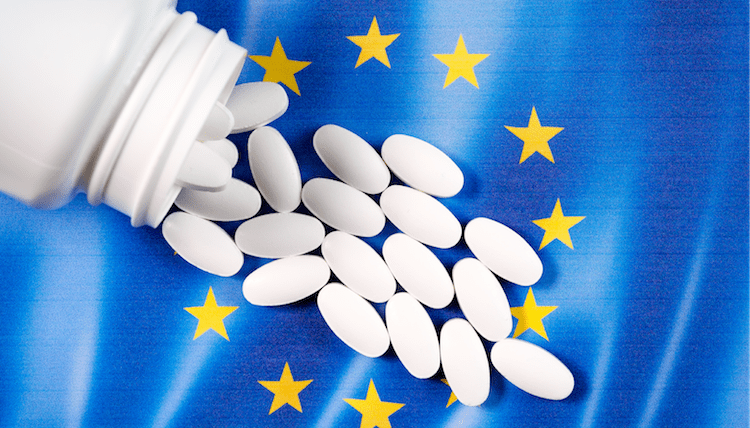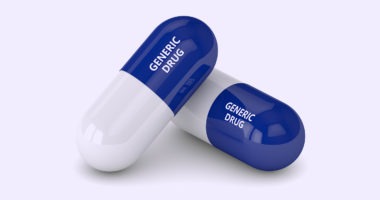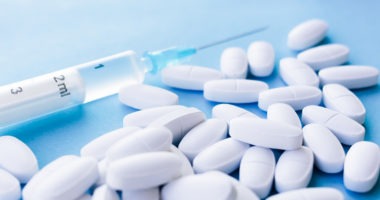European Commission Proposes Changes for Patent Rules for APIs
The European Commission has proposed a change to its regulations to allow for a manufacturing waiver for export purposes for pharmaceuticals involving supplementary protection certificates (SPCs) in an effort to bolster the competitiveness of the European generic-drug and biosimilar industries.
SPCs are an intellectual property right that serve as an extension to a patent right. They apply to specific pharmaceutical and plant protection products that have been authorized by regulatory authorities, but they have created an issue for both generic-drug and biosimilar developers and European active pharmaceutical ingredient manufacturers in limiting the time in which they can begin development. DCAT Value Chain Insights examines the issues.
Inside the proposal
As part of its Single Market Strategy, the European Commission (EC) has proposed a targeted recalibration of certain aspects of patent and supplementary protection certificate (SPC) protection to boost the competitiveness of regulated industries such as the pharmaceutical industry in the European Union (EU). The move is supported by generic-drug and biosimilars developers but is opposed by the innovator-drug industry.
In issuing the proposal, the EC was seeking to resolve long-standing issues with patent and SPC protection in the EU. SPCs are an intellectual property right that serve as an extension to a patent right. They apply to specific pharmaceutical and plant protection products that have been authorized by regulatory authorities, but they have created an issue for European active pharmaceutical ingredient (API) manufacturers as well as generic-drug and biosimilar developers in limiting the time in which they can begin development of APIs and the generic drug and/or biosimilar.
In October 2017, the EC issued a public consultation, open until January 4, 2018, to gain feedback on measures regarding waivers for SPCs, an issue of strong importance to innovator pharmaceutical companies, generic-drug companies, and API manufacturers. SPCs provide an incentive in the EU by extending the protection of patented medicines by up to five years to compensate for the time lost in obtaining regulatory approval of the medicine. During this period, European manufacturers of generic-drug and biosimilar medicines cannot produce their medicines in the EU.
Under current legislation, generic and biosimilar medicines producers are not allowed to manufacture for commercial purposes during the patent period of the reference product as it infringes the patent right. SPC regulation in Europe allows holders of patents to authorize medicinal products to partially extend their product exclusivity by up to five years. The purpose of the original legislation, which was enacted in 1992, was to recompense product-developing companies for the time taken to obtain regulatory approval of their medicines and give them longer market exclusivity in the form of a SPC. The SPC regulation, however, according to some, has had the unintended effect of putting the European generic-drug and biosimilar medicines industries at a competitive disadvantage vis-à-vis manufacturers producing in non-EU countries where no similar patent/SPC protection exists. Critics of SPCs say that European manufacturers are currently required to outsource production outside Europe to supply countries without SPCs or where SPCs expire earlier than in Europe in order to provide competition as soon as SPCs expire in Europe.
The EC’s proposed manufacturing waiver
Following the public consultation period and review of the comments received, the EC issued a proposed regulation to address three main issues with SPCs. First, the EC wanted to address the loss of export markets, including new business opportunities, and a lack of timely (meaning Day One) entry into EU member states following expiry of the SPC for EU-based manufacturers of generics and biosimilars. The EC also wanted to address what it calls the “fragmented implementation” of the SPC regime in EU member states and of the Bolar patent exemption.
The Bolar patent exemption aims to speed entry of generic medicines into the market by allowing early preparatory development on generics to obtain pre-market regulatory approval even when the SPC of the reference medicine is still in force. The Bolar exemption is regulated at the EU level for the pharmaceutical industry only. The scope of the EU Bolar exemption has been updated in some EU countries to meet new pharmaceutical-related requirements. The Bolar exemption enables generic and biosimilar medicine developers to undertake R&D in order to obtain regulatory approval for their products.
The EC’s proposal calls for a manufacturing waiver during the term of an SPC that would take the form of an “exception” or in other words, a restriction, to the protection conferred to the SPC which “would aim at removing the competitive disadvantages EU-based manufacturers of generics and biosimilars are currently facing,” according to the EC proposal. It would allow generic and biosimilar developers to manufacture, in an EU member state during the term of an SPC, for the exclusive purpose of exporting their products to non-EU markets where patent or SPC protection has expired or never existed.
The EC says that the proposed manufacturing waiver for export purposes would remedy competition issues. “While Europe’s trading partners are increasingly involved in the manufacturing of generics and biosimilars, EU-based manufacturers of generics and/or biosimilars face a significant problem: during the SPC period of protection of the product in the EU, they cannot manufacture for any purpose, including export outside the EU to countries where SPC protection has expired or does not exist, while manufacturers based in those non-EU countries can do so,” said the EC in its proposal.
“This problem puts EU-based industry at a disadvantage vis-à-vis manufacturers located outside the EU, not only in global markets, but also in Day-1 EU markets,” said the EC in its proposal. “This is because the certificate [SPC] makes it more difficult for EU manufacturers to enter the EU market immediately after its expiry, given that they are not in a position to build up production capacity until the protection provided by the certificate has lapsed. The same is not true of manufacturers located in non-EU countries where protection does not exist or has expired. The problem is aggravated by the dynamics of the generics/biosimilars markets whereby, after expiry of patent/SPC protection of the reference medicine, only the first few generics/biosimilars to enter the market capture a significant market share and are financially viable.”
The manufacturing waiver for export purposes would allow EU-based manufacturers of generics and biosimilars to manufacture during the term of SPCs for the exclusive purpose of exporting their products to non-EU markets where protection does not exist or has expired. The EC said it would also address, to a certain extent, the EU Day-1 entry issue. “…[A] manufacturer having set up a manufacturing line for export purposes will easily be able, after SPC expiry, to use the same line to manufacture generics or biosimilars with a view to swiftly supplying the EU market,” said the EU in its proposal. “Obviously, these manufacturers would have to comply fully with the applicable pharmaceutical legislation and, for instance, possess a valid marketing authorization at the time the products are placed on the EU market.”
In proposing a manufacturing waiver for export purposes, the EC emphasized that the proposal leaves SPC protection fully intact with regards to placing products on the EU market. SPC holders will keep their market exclusivity in EU member states during the full SPC protection term. The EC also highlighted that the proposal is accompanied by a series of safeguards to ensure transparency and avoid the possible diversion into the EU market of generics and biosimilars for which the original product is protected by an SPC. Businesses intending to start manufacturing for export purposes will be under an obligation to notify the competent authorities, and the information contained in that notification will be made public. They will also have to comply with due-diligence requirements, chiefly to prevent goods manufactured for export from being diverted into the EU market. Finally, any export of SPC-protected products outside the EU will be subject to compliance with specific labelling requirements.
The EC’s proposal amends Regulation 469/2009 on SPCs for medicinal products. Once adopted by the European Parliament and Council, it would be directly applicable in all EU member states. The changes, if introduced, would be subject to review after five years, according to the EC proposal.
Industry feedback
Industry feedback on the proposed manufacturing waiver for exports was mixed with the generic-drug and biosimilar industry supporting the measures and the innovator-drug industry opposing it. In all, the EC received 63 comments from generic/biosimilar developers and 72 comments from the holders of SPCs during the public consultation period from October 2017 to January 2018.
Medicines for Europe, which represents generic-drug and biosimilar developers in Europe, supported the measure. “Medicines for Europe commends the European Commission for proposing an SPC manufacturing waiver which will have a positive impact on the export of European generic and biosimilar medicines, particularly for small and medium enterprises (SMEs),” said the association in a May 28, 2017 statement.
It is also calling for additional changes. “Legislators (Parliament and Council) now have the possibility of improving the Commission proposal by including manufacturing for ‘Day 1 launch’ and correcting the anomalies that limit its effective use for SMEs,” said Medicines for Europe in its statement. “Only a comprehensive and usable SPC manufacturing waiver would address the unintended effect of the SPC regulation that has forced European generic and biosimilar manufacturers to delocalize manufacturing outside the EU… Our call now is on the European Parliament and Council to rapidly adopt the proposal with the right to produce for launch in Europe, which will increase access to medicines for patients, lower drug costs for national health budgets and benefit a dynamic European industry.”
The European Federation of Pharmaceutical Industries and Associations (EFPIA), which represents the innovator-drug industry in Europe, is opposed to the manufacturing waiver for exports. “EFPIA, the organization representing 40 of the biggest investors in life-science research and development, is deeply concerned with the European Commission’s proposal to open the SPC legislation with a view to introducing a manufacturing waiver,” said the association in a May 28, 2017 statement. “…EFPIA has a very real concern that this proposal to de-value the IP [intellectual property] and incentives framework will be detrimental to patient access to innovative medicines and lead to a greater percentage of the R&D of those treatments moving to other parts of the world that value and are strengthening the knowledge-based economy.”
Assessing other options
The EC said that it considered other options, which including not making any changes. “This would not address the identified problems, with negative consequences for manufacturers of generics and biosimilars, and, to some extent, patients and national health systems, said the EC in the proposal.
Another option considered by the EC was, in collaboration with EU member states to facilitate voluntary agreements between generics/biosimilars manufacturers and originators, consisting of allowing advance manufacturing of generics during the SPC term of the reference medicine. “The impact of this option would however be limited,” said the EC in its proposals. “…Such agreements may be refused by the SPC holder of the reference medicine, may only be adhered to by a few manufacturers of generics/biosimilars, or be subject to dissuasive conditions (e.g. high financial compensation requested by the SPC holder). In addition, experience shows that comparable initiatives launched in some Member States have not been very effective.”
A third option was to amend the EU SPC legislation, so as to allow EU-based manufacturers of generics and biosimilars, during the SPC term of the reference medicine, to manufacture for export and/or stockpiling purposes, possibly with anti-diversion measures. In addition to these three options presented above, different scenarios on the “time-bound applicability” of the manufacturing waiver were analyzed
In the end, the EC’s preferred option introduces an exception to enable manufacturers of generics and biosimilars to manufacture such medicines for the purpose of exporting them outside the EU during the SPC protection term. This exception is accompanied by anti-diversion safeguards, such as a requirement to notify, ex ante, such manufacturing to independent national public bodies (which will hold the relevant information in a publicly accessible register) along with labelling requirements for products that are exported and due-diligence requirements on the manufacturer vis-à-vis persons in its supply chain. The exception is also subject to the following conditions: the exception will apply only to SPCs that have not yet been granted, and only after a transitional period to accommodate pending applications. The EC said that this transition will allow market players to take account of the new situation when making investment decisions and give national authorities enough time to set up their arrangements for receiving notifications of the intention to make use of the manufacturing waiver.





